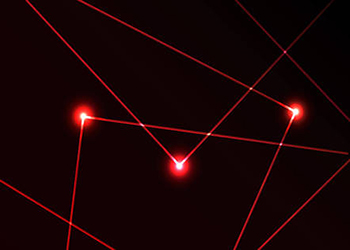Laser Liposuction- A Safety Profile

Abstract:
Safety profile always remains the highest concern for everyone
undergoing an invasive medical procedure. The severity, duration and extent of side
effects matter to both the team and the patient. The assurance that stems from the
doctor’s experience and confidence plays a major role in the patient’s acceptance
to undergo the procedure. The paper discusses the side effects that were commonly
seen with other methods of liposuction and Laser assisted Liposuction is compared
along with. The subjects were ‘primed’ before laser Assisted Liposuction and ‘priming’
is defined here. Priming methodology used here is Monopolar and Bipolar Radio frequency
and the systems used are BTL Exilis and Med 360, a system combining Vacuum rollers,
Bipolar radio frequency and Infra-Red light. The priming is used as an adjuvant
to the process of liposuction to facilitate the procedure. The study covers a wide
range of subjects in the age group 30-74 years with BMI above 30 and wt between
70-140 Kg. The subjects included those with many other chronic debilitating illnesses
like Diabetes, Hypertension, Non-alcoholic Fatty Liver degeneration, infertility
etc. The study gives a wide profile of the post-operative period to find that LAL
under TA is quite safe and is well withstood by people of all ages with many coexistent
chronic disorders. The findings concur with existing reports on the safety profile
of Laser assisted Liposuction which is discussed here. The study concludes that
Laser assisted liposuction is a safe procedure free from many common side effects
even in the presence of other illnesses.
Keywords:
LAL, Laser assisted Liposuction, Tumescent
Anaesthesia.
References:
[1].
Araco A, Gravante G. Aesthetic Plastic
surgery 2007 May-June 31(3)259-265 5.
[2]. Badin AZ, Gondek
LB, GarciaMJ, Flizikowski FB, de Noronha. Aesthetic Plast Surg 2005;
29:281-286 8.
[3].
Badin A, Moraes L, Gondek L, et al. Laser
lipolysis: flaccidity under control. Aesthetic Plast
Surg. 2002; 26:335–339.
[4].
Barry E. DiBernardo, MD, Aesthet Surg J
(2010) 30 (4): 593-602.
[5]. Goldman, A.Gotkin.
Laser-assisted liposuction, Clin Plast Surg 2009; 36:241-253,255 6. Sasaki G,
Tevez A. Laser assisted liposuction for facial and body contouring and tissue
tightening: a 2-year experience with 75 consecutive patients. Semin Cutan Med Surg. 2009; 28:226–235.PubMed
7.
[6]. Goldman A, Schavelzon DE, Blugerman GS. Laser lipolysis using
Nd: YAG laser. Rev Soc Bras Cir Plast. 2002; 17: 17–26. 9. DiBernardo BE, Reyes J. Evaluation of skin
tightening after laser-assisted liposuction. Aesthet
Surg J. 2009; 29(5):400–407 10.
[7].
Klein JA Anesthesia for liposuction in dermatologic surgery J
Dermatol Surg Oncol 1988:14:11124-1132
[8].
Klein JA Tumescent technique for local anesthesia improves safety in
large-volume liposuction; Plast Reconstr Surg;1993; 92:1085-1098;
discussion 1099-1100.
[9]. Malcom Paul, Robert Stephen
Mulholland. Aesthetic plastic Surgery- 2009 September Volume 33 issue 5 pp
687-694.
[10].
Rohrich
R. Levels of triglyceride in aspirate after liposuction, Presented at
Lipoplasty Society of North America Annual Meeting-San Francisco, CA: 1997 3.
Zocchi M. Ultrasonic Assisted Lipectomy instructional course. American society
for Aesthetic Plastic surgery1995; 2:27-65 4.
[11].
Yi
Sun, others. Laser lipolysis used to treat localized adiposis; Aes. Plas.
Surgery; Sep 2009 volume 33 issue 5 pp 701-705 11. Palm MD, Goldman MP. Laser lipolysis: current practices. Semin Cutan Med Surg. 2009; 28:212–219
12. Melvin A. Shiffman; Liposuction Principles and Practice: 321-324.

